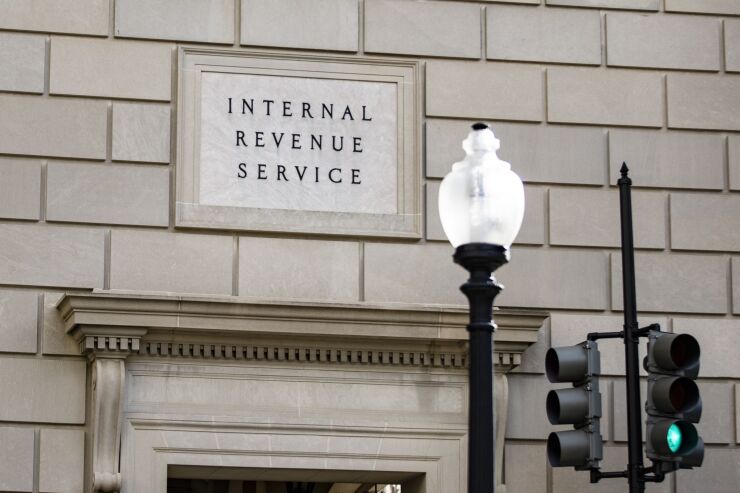The National Association of Enrolled Agents is urging the Internal Revenue Service to use its increased funding to fix its Practitioner Priority Service, complaining in a letter to the acting head of the IRS that the service is "nearly nonexistent."
"In particular, the IRS's Practitioner Priority Service (PPS) phone system, which has the very purpose of providing efficiency and ease for tax professionals, has become nearly inoperable in recent weeks," wrote NAEA executive vice president Megan Killian in a letter Tuesday to IRS acting commissioner Douglas O'Donnell. "With the recent funding for the IRS in the Inflation Reduction Act (IRA), we call on the IRS, as their first action in expending these funds, to immediately begin demonstrating concrete improvement to the phone situation and as a result begin restoring confidence in customer service."
She provided some examples of the daily complaints the NAEA receives from enrolled agents about the problems with the PPS line that have made it harder to use: "I have tried no less than 15 times during the day. Today was the last straw. I placed the first call at 6:59 a.m. and got the message 'Due to extremely high call volume we are unable to take your call. Please call back later or tomorrow.' How can there be extremely high call volume at 7:00 a.m. when they first open? I tried four more times and still got the same message. This is happening even with the new challenge calls which were implemented to stop the robocalls from tying up the lines," said an unidentified enrolled agent from South Carolina.

"It took me 35 calls today to get in the hold line today!" said an enrolled agent from Indiana. "I noticed that I got the verbal authentication about one in every four attempts. Had to either repeat three words, repeat sentences and sum two numbers correctly. It now takes longer to still get the 'high call volume' message."
Another enrolled agent from Virginia said, "I haven't gotten through on the practitioner hotline in over a year," while an EA in Texas said, "I don't even try to get through anymore."
One of the culprits for the longer delays in recent months has been a speech recognition system that the IRS began pilot testing in October as a way to deter auto-dialers and robocalls (
"I was put through this verbal authentication three times today, and each time I got the 'high call volume' message," said an enrolled agent from Arizona. "It now takes twice as long to get hung up on by the IRS. This is more frustrating than ever before."
The NAEA complained that accessing the PPS lines has become nearly impossible for tax professionals to get the help they need from the IRS, and the organization has received anecdotal evidence indicating that less than 1% of callers can get through the PPS individual line.
"One contributing factor and source of frustration is a recent pilot that was put into place to prevent auto-dialers, with the goal of freeing up lines," Killian wrote. "While we understand the goals of the pilot, it has unfortunately had the opposite effect of making the waits even longer. The IRS has also suggested that tax professionals utilize a Tax Pro Account or other online tools while the phones are not operable. While we appreciate the sentiment and have long pushed for more robust online tools for tax professionals, there are a variety of circumstances where Tax Pro Accounts are currently not an option and tax professionals are forced to call the IRS for assistance on tax issues or for transcripts."
The NAEA pointed to other long-term solutions that could help reduce call volume, such as having better online tools for tax professionals and reducing the Centralized Authorization File wait time for a transcript, but immediate action must be taken to address this issue and improve customer service. "By implementing these steps, the IRS can be better equipped to aid tax professionals across the country," said Killian.
Her group also had some other suggestions for how the IRS can use the extra $80 billion it is receiving from Congress over the next 10 years as part of the Inflation Reduction Act.
"The decline in service comes at a time when the IRS is under more scrutiny than ever, as many have questioned whether the IRA funds will be focused on more audits or improving the taxpayer experience," Killian wrote. "The window of opportunity for the IRS to truly show it will use these funds to dramatically improve customer service is limited, and the IRS should use this opportunity to tackle the phone problems head on."
The NAEA is calling on the IRS to take the following steps immediately to alleviate the issue with the PPS line:
- Set a goal with metrics for immediate improvement to the phone system;
- On a monthly basis, measure and report on wait and response times and customer service satisfaction;
- Utilize private sector expertise to initiate improvements;
- Reassign more staff to answer the PPS phone lines; and,
- Pause the auto-dial pilot that has only increased wait times.
"The credibility of the agency is on the line, and it is important that the IRS demonstrate to the American taxpayer that it has the ability to utilize these new resources and quickly improve the taxpayer experience," said Killian.





